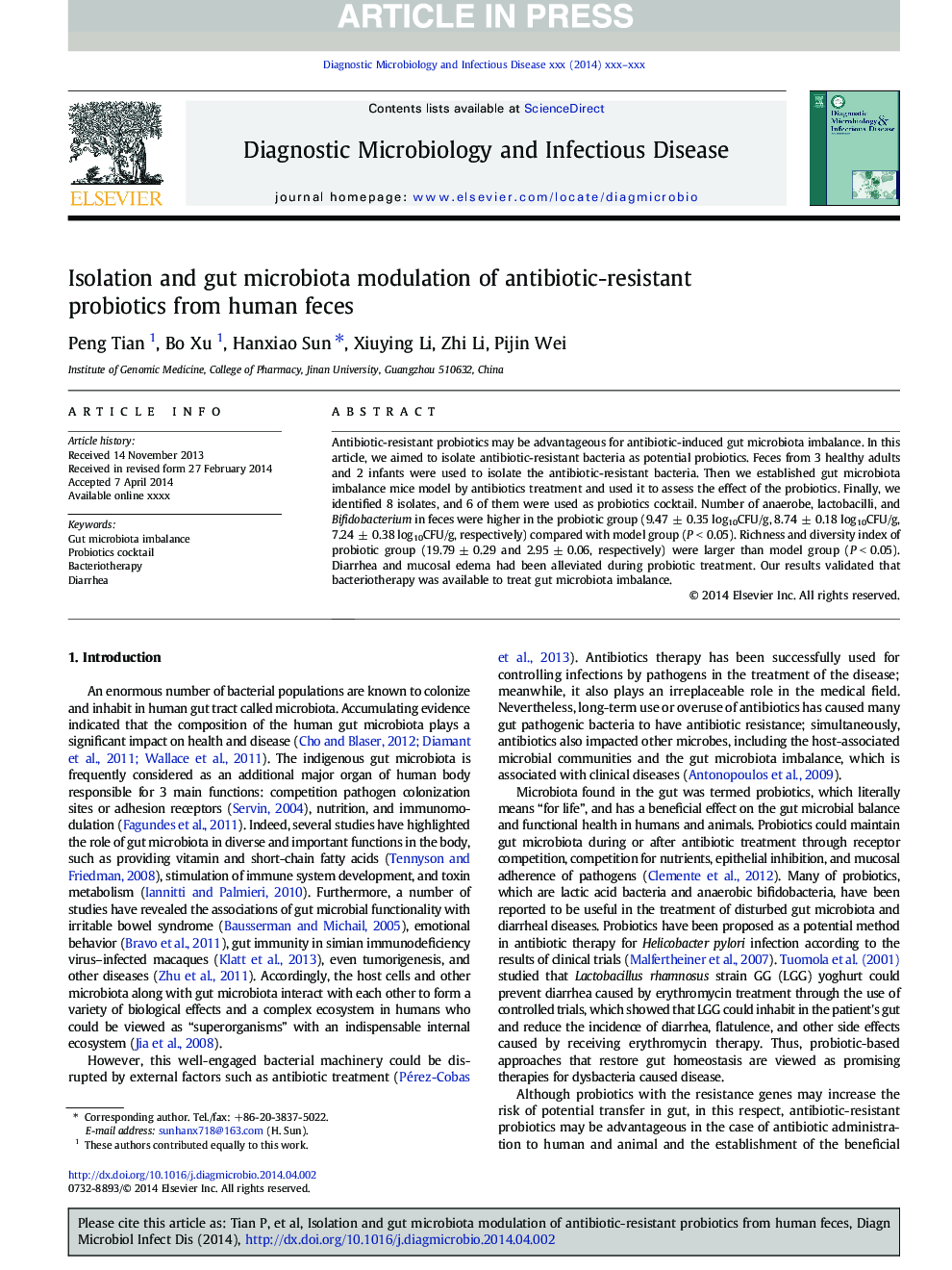| Article ID | Journal | Published Year | Pages | File Type |
|---|---|---|---|---|
| 6115867 | Diagnostic Microbiology and Infectious Disease | 2014 | 8 Pages |
Abstract
Antibiotic-resistant probiotics may be advantageous for antibiotic-induced gut microbiota imbalance. In this article, we aimed to isolate antibiotic-resistant bacteria as potential probiotics. Feces from 3 healthy adults and 2 infants were used to isolate the antibiotic-resistant bacteria. Then we established gut microbiota imbalance mice model by antibiotics treatment and used it to assess the effect of the probiotics. Finally, we identified 8 isolates, and 6 of them were used as probiotics cocktail. Number of anaerobe, lactobacilli, and Bifidobacterium in feces were higher in the probiotic group (9.47 ± 0.35 log10CFU/g, 8.74 ± 0.18 log10CFU/g, 7.24 ± 0.38 log10CFU/g, respectively) compared with model group (P < 0.05). Richness and diversity index of probiotic group (19.79 ± 0.29 and 2.95 ± 0.06, respectively) were larger than model group (P < 0.05). Diarrhea and mucosal edema had been alleviated during probiotic treatment. Our results validated that bacteriotherapy was available to treat gut microbiota imbalance.
Keywords
Related Topics
Life Sciences
Immunology and Microbiology
Applied Microbiology and Biotechnology
Authors
Peng Tian, Bo Xu, Hanxiao Sun, Xiuying Li, Zhi Li, Pijin Wei,
